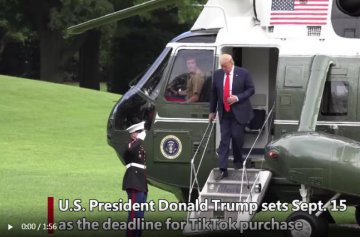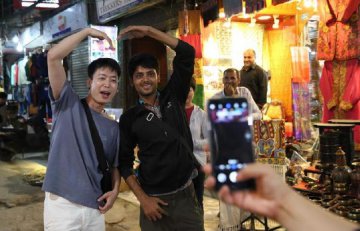ISTANBUL, Aug 8 (Xinhua) -- The U.S. efforts to clamp down on popular short video-sharing app TikTok is part of a broader attempt to curb China's technological sector, a Turkish expert has said.
"This move can be considered as the latest card used by the United States in its fight against China and its technological rise. This is a battle for technological dominance," Altay Atli, a scholar at Istanbul's Bogazici University, told Xinhua.
"This is a new front of the battle," said Atli.
U.S. President Donald Trump on Thursday issued an executive order banning any U.S. transactions with the Chinese tech firm ByteDance, owner of TikTok, starting in 45 days.
Atli, an Asia-Pacific expert, said that the Trump administration wants to push back against China's rise as a tech competitor.
"We have to see this within the context of a strategic and multilateral fight for dominance. Tomorrow, Washington can pick up another company related to China," he noted, adding the U.S. move is discriminatory.
TikTok has been downloaded over 175 million times in the United States and over 1 billion times globally, according to the executive order, which claims that the app automatically captures "vast swaths of information" from its users, posing risks to U.S. national security.
A similar executive order has also been issued for WeChat, a messaging and social media app owned by Chinese tech giant Tencent.
Atli said this latest move is part of the Trump administration's sanction-imposing ploy, which began with Chinese telecom giant Huawei. Trump also encouraged allies to put the Chinese company on a blacklist.
The expert said Trump is trying to use the strategic battle with China as an electoral card to seek reelection in November's presidential elections.
Trump's push came amid escalating rhetoric against Beijing over trade and the COVID-19 pandemic, Atli said. "The U.S. sees the rise of China as a threat, and the perception of this threat is being instrumentalized by President Trump."
"Huawei is a much bigger piece to swallow and is not a daily concern of American voters while TikTok is in their daily lives and may have a different impact on voter choices," Atli noted.






















Latest comments